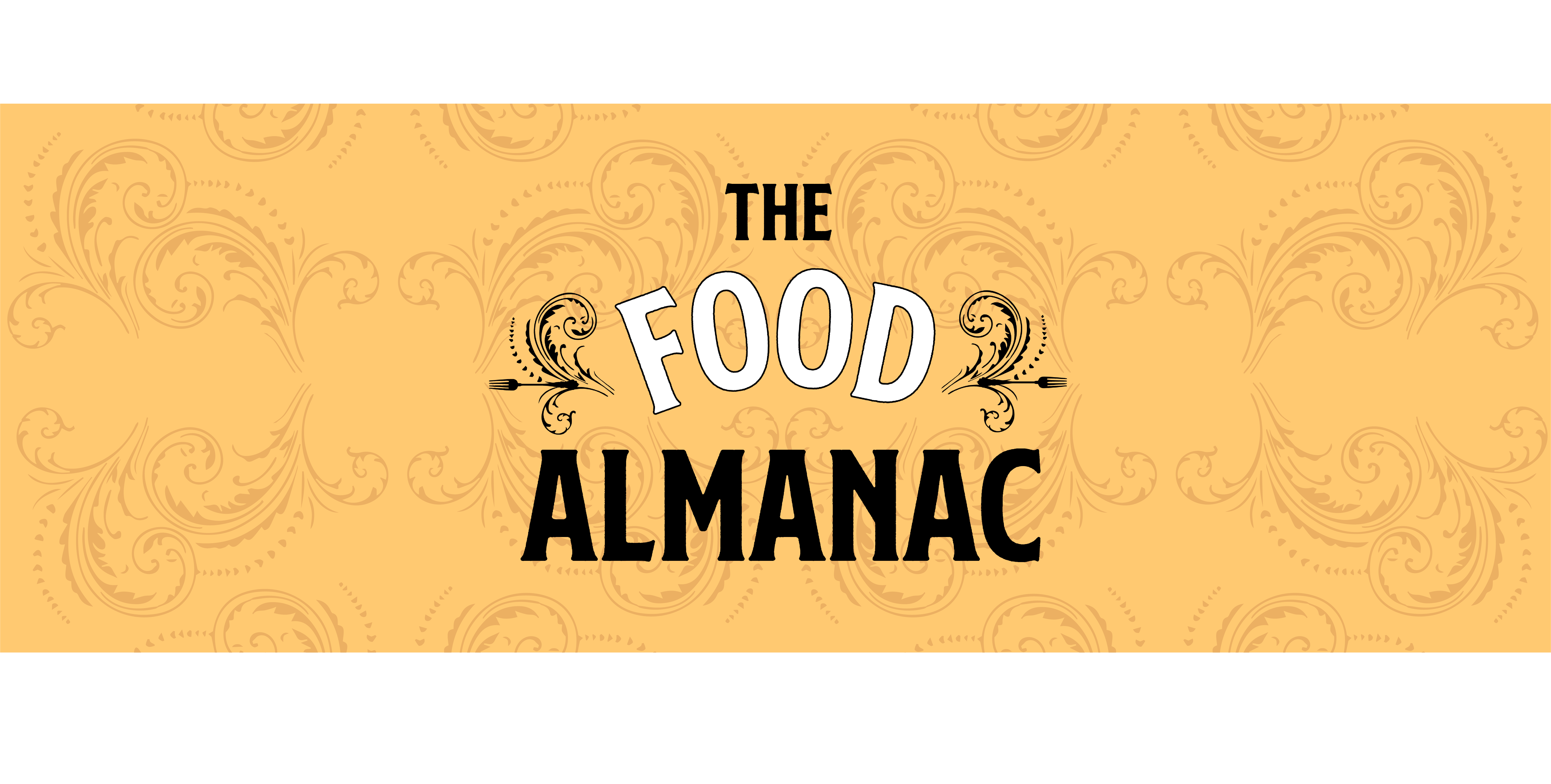June 29
It's Veal Chop Day
St. Peter. Veal Chop. Eating An Elephant. Baconville. Grain of Paradise. Book Of Spices. Jayne Mansfield.
Days Until. . .
Fourth Of July 5. Coolinary begins 32
Today's Flavor
Today is Veal Chop Day. Veal chops were very hip in the 1980s. Every restaurant that served them found its customers raving about the dish. The popularity of the cut faded in the 1990s, and now few non-Italian restaurants serve them. (One reason for this, beside the fading vogue, is the high cost of veal chops.) The standard veal chop is cut from the rib roast. It's the same cut that gives us prime rib and ribeye steaks in beef. In recent years, two new kind of veal chops have become common. Racks of chops cut from the far-forward end of the rib cage have small eyes, and can be served two or three at a time for a different presentation. These are very good; if you see a veal rack on a menu, order it. The other newly-common veal chops are the veal T-bone or very similar veal porterhouse, which are very similar. Both contain parts of the tenderloin and strip loin, separated by the bone. I think veal tenderloins and veal strip steaks are underappreciated. I prefer them to rib chops--if they're cooked properly. Which brings up the big issue. Veal is not easy to cook. Because it lacks the fat and collagen-bearing tissues of beef, it can get very tough very quickly. Lately I am persuaded that it might be a better idea to cook veal chops at a rather low temperature, instead of searing them in a pan or on a grill. The veal roasts they're doing at Impastato's show this well. Cooked in the style of a prime rib--slow and long--they come out much juicier than if they'd been cooked like steaks. Veal chops also display much variability in intrinsic quality. Some are tough and tasteless, even when cooked to the right degree (medium--a blush in the center). An unusual and good version--particularly if the chop is not top of the line--is the Milanese style: pounded out and panneed with seasoned, Parmesan-cheese-sprinkled bread crumbs.
Edible Dictionary
graines de paradis, grains of paradise, n.--A mildly peppery spice from the tropical zones of western Africa. It grows in a pod on an herbaceous perennial plant, Amomum melegueta. The seeds are what's consumed; they're about twice the size of black peppercorns. They became popular in Europe in the 1400s, when trade in black pepper and other spices was spiraling upward, and anything that could add flavor was in demand. Grains of paradise are much milder than black pepper, and have a bitter finishing flavor. It was a second choice if black pepper were unavailable or too expensive. Although it's still used in its native African range, it's almost disappeared from the spice market, despite the efforts of a few chefs who use it to puzzle their customers.
Annals Of Imaginary Eating
Antoine de Saint-Exupery was born today in 1900. He was both an accomplished aviator and a brilliant writer. His most famous book--Le Petit Prince--was ostensibly written for children, although the themes in it have a way of staying with us into adult life. His drawing in that book of a snake that just ate an elephant is memorable.
Gourmet Gazetteer
Baconville is in central Massachusetts, ninety miles west of Boston. It's on a ledge at the 300-foot level in the hilly woodlands, where each house's clearing is like a hole in the dense forest. Baker Branch flows into Dean Brook at Baconville. Baker Reservoir is nearby. The nearest town of substance is Amherst, a mile and a half away. There you'll find a place to eat called Wings Over Amherst. Get a baker with bacon there.
Annals Of Food Writing
Rembert Dodoens was born today in 1516. He was a Flemish botanist who wrote a seminal book about the entire plant kingdom. Later, he wrote the Cruydt Boek, or Book Of Spices, a reference to the herbs and spices that were then in use for cooking and medicine. It's a valuable work for those researching the ancient history of European cooking.
Annals Of Winemaking
This is the birthday (1912) of Emile Peynaud, who in France is considered one of the leading figures in the modernization of French vineyards and winery practices. Most of what he suggested seems obvious now. He said, for example, that very underripe and overripe grapes should be left out of the harvest. That did result in better wines. So did allowing malolactic fermentation to occur in some wines.
The Saints
It's the feast day of St. Peter, the patron saint of fishermen, bakers (why?), butchers (?), and popes (he was the first one). St. Peter is depicted on the label of Chateau Petrus, one of the world's most expensive red wines.
Alluring Dinner Dates
The stunningly beautiful and zaftig actress Jayne Mansfield died today in 1967, in a very bad automobile accident here in New Orleans. She was 36. She held many Miss This-Or-That titles, but turned down Miss Roquefort Cheese because, she said, "That just didn't sound right."
Food Namesakes
Dr. William James Mayo, who founded the Mayo Clinic with his father and brother, was born today in 1861. . . Pepper Johnson, an NFL linebacker, was born today in 1964. . . Nick Fry, who was in charge of Mercedes Formula One Racing, started his engine today in 1956.
Words To Eat By
"My mother was a good recreational cook, but what she basically believed about cooking was that if you worked hard and prospered, someone else would do it for you."--Nora Ephron, American writer.
Words To Drink By
"Brandy, n.--A cordial composed of one part thunder and lightning, one part remorse, two parts bloody murder, one part death hell and the grave and four parts clarified Satan."--Ambrose Bierce, The Devil's Dictionary.

